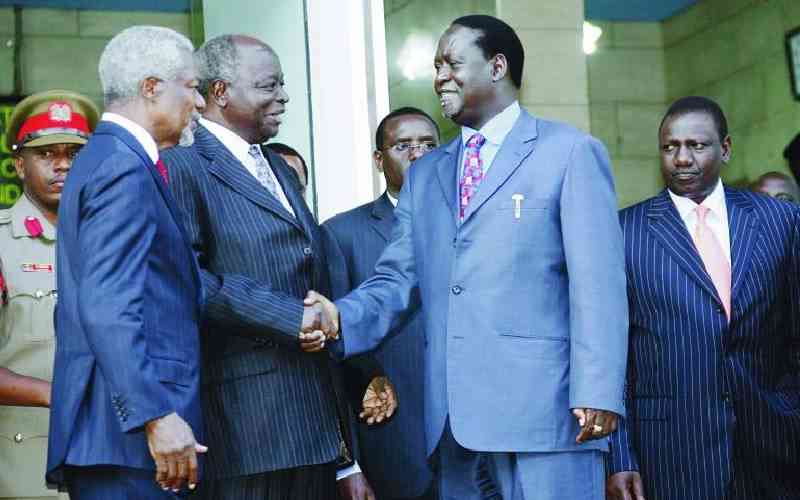×
The Standard e-Paper
Smart Minds Choose Us

When he was Uasin-Gishu governor, Jackson Mandago, now the area senator, gave us a gem of wisdom: He advised that politics are best kept in the lungs where you can breathe it out but not in the heart where it can tragically block your arteries.
Opposition leader Raila Odinga appears to play his politics by the 'Mandago Principle'. That comes out clearly as one travels down memory lane of Raila's chequered political career.